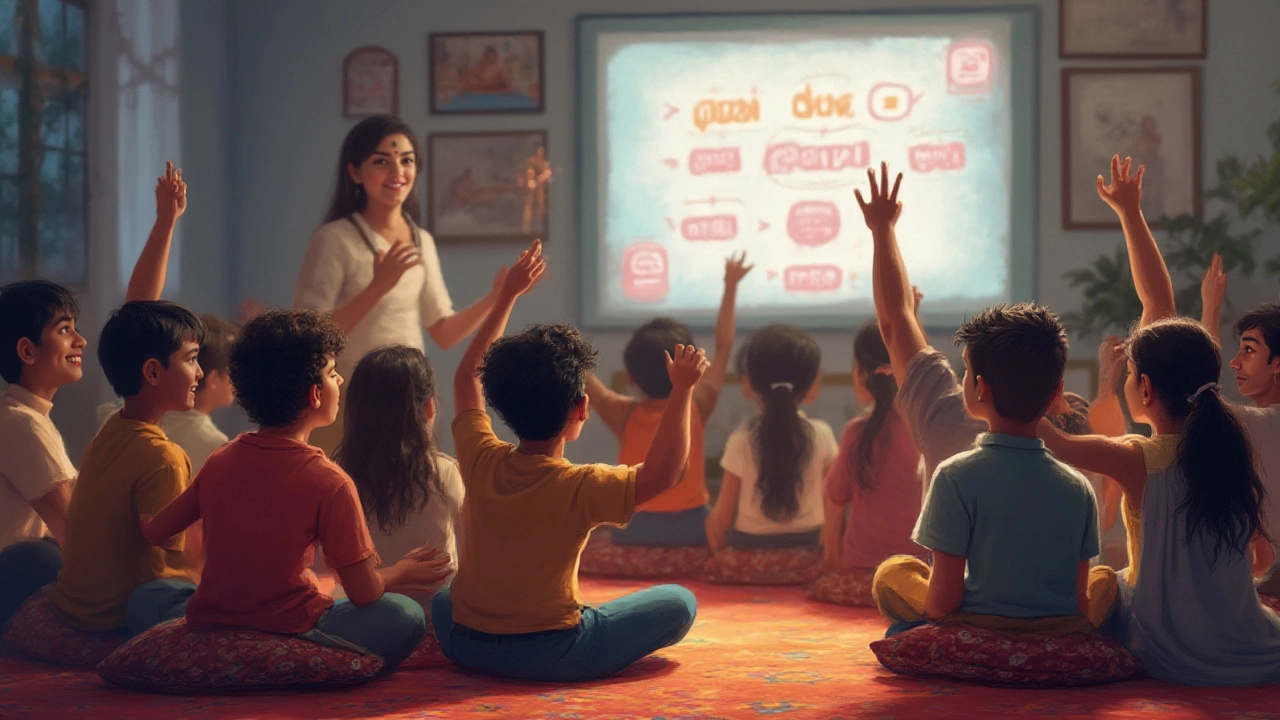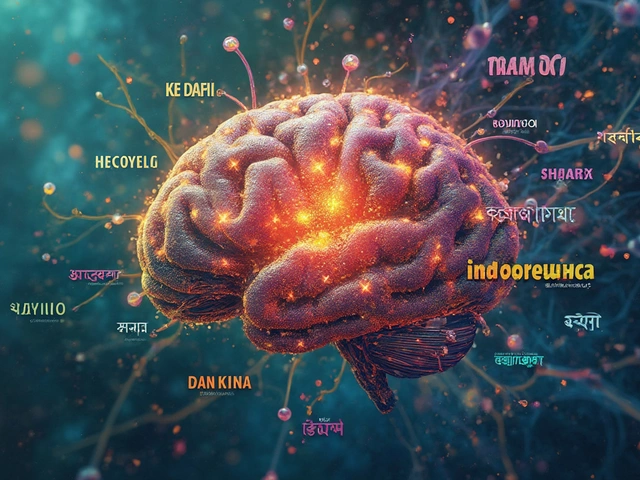Picture this: you’re staring at your laptop, hands hovering awkwardly over the keyboard, ready to crack open a new coding tutorial. But that mix of excitement and panic hits—does learning to code really have to feel like climbing a mountain in thongs? People talk about programming as the magic behind all the apps, games, and online shops we use every day. But walk into any beginner’s coding class and you’ll spot sweaty palms and wide eyes, not wizards waving sticks. The rumor is that coding is brutally hard, especially for beginners. But is it actually?
Why Does Coding Feel Scary for Beginners?
First up, let’s call it out: starting anything new can be weirdly intimidating, and coding is no different. But throw in lines of code that look like gibberish if you haven’t seen them before, and that anxiety gets supercharged. Most beginners hit a wall because they expect to be writing big programs straight away, maybe after watching a couple YouTube tutorials or reading a blog. In reality, writing bugs (mistakes) is not just common, it’s almost a rite of passage. That first error message—syntax error, missing semicolon, ‘undefined variable’—slaps you in the face with the feeling that maybe you’re out of your depth. And it doesn’t help that friends or memes online might joke about programmers working at 3am, living off coffee and stress.
What’s really going on though? The actual hard bit is understanding that computers don’t “think”, they follow orders—very, very specific ones. If you accidentally say, “Go eat apple” instead of “Eat the apple”, programs crash or do something ridiculous. That’s where frustration comes in: instant feedback when something is wrong, and sometimes no obvious reason as to why. But get this: according to a survey run by Stack Overflow (the world’s biggest coding Q&A site) in 2024, around 58% of new coders admit to being “overwhelmed” in the first month. You’re not alone. Everyone—even people who end up as pro developers—hates the feeling of getting stuck and not knowing what went wrong.
Coding looks alien because you’re literally learning a new language—and usually learning to think in a way you’ve never needed to before. It’s like switching from freestyle conversation to super-app-specific instructions. Your brain is rewiring, slowly, painfully, but surely. This is why some might say coding is hard at first—not because writing the code is impossible, but your mind needs to get used to this brand new process. Funny enough, struggling is actually a good thing. If you ask any coder when they learned the most, it’ll be when things were breaking and they had to fix stuff themselves. That’s how the muscle builds.

The Real Challenges Beginners Face
So what's tripping new coders up? Let’s break it down so you know what’s truly in front of you, not just the scary myths. Number one: “What language do I even start with?” You’ll hear about Python, JavaScript, C++, Java, and you might feel you have to choose the Perfect One straight away. Truth? The first language barely matters. Python is super popular for beginners since the syntax is forgiving, almost readable. Here in Australia, universities love introducing students to Python or JavaScript. You could start there, or choose a language that matches your interests (like Swift for iPhone apps, or JavaScript for web stuff).
Next, there’s the “tutorial rabbit hole”—you start watching or reading tutorials and they make sense UNTIL you try to actually write code yourself. Suddenly you’re stuck. It’s easy to believe you just need to watch more tutorials, but really, progress starts when you practice by solving mini-problems. A study from the University of Sydney in 2023 found that people who jumped into projects, even super simple ones, felt more confident and retained concepts way better than those who only watched guides.
Debugging is another monster. If you’re dealing with your first ‘endless red error’ and your mind goes blank, welcome to the club! Even senior coders run into bugs daily. The real skill is Googling the error message, reading similar problems on sites like Stack Overflow, and slowly piecing together a solution. Believe it or not, searching for help is what most professional coders do, so don’t feel shy about looking up answers. The first time you fix a bug, that win will feel massive—so much so you’ll forget about the hour you spent smashing your keyboard before figuring it out.
Then there's imposter syndrome: that sneaky feeling you’ll “never get this” or aren’t cut out for coding. It hits everyone. Harvard CS50, probably the world’s most famous coding course, found that more than half their students feel ‘lost’ at some point, but then gradually things click. It’s not about talent or genius—it’s about time spent grinding, and the more you show up, the less magic and the more sense it all makes.
Time management sneaks in here too. Lots of beginners feel they need to dedicate whole weekends or long nights to ‘become a real coder’. But it’s way more effective to do a little bit every day. Even half an hour a day is better than trying to code for 6 hours once a week, then burning out. Remember, it’s muscle memory—not cramming for a test. If you need structure, plenty of coding bootcamps and online courses give daily exercises or weekly sprints, which helps keep motivation up.
Let’s have a look at some real-world numbers to help ground the fear.
| Survey/Study | Year | Key Finding |
|---|---|---|
| Stack Overflow Developer Survey | 2024 | 58% of new coders felt overwhelmed in month 1; 79% felt more comfortable after 3 months |
| University of Sydney Coding Bootcamp | 2023 | Regular practice: 67% more likely to pass vs. occasional crammers |
| Harvard CS50 Student Feedback | 2023 | Over 50% felt ‘lost’ at least once during the course, but 89% finished successfully |
Honestly, the first few months can feel rough. But the dropout rate for beginners who stick with regular bite-sized practice is MUCH lower than people expect. You’ll be amazed how quickly error messages and weird bugs that once freaked you out become just one more little hurdle to jump.

Tips to Make Coding Easier When You’re Just Starting
Alright, so you know the pain points, but what actually helps? Start with this: set tiny, real, and clear goals. “Make a calculator”, “Build a quiz”, “Show a joke on screen”—not “Master Python in a week”. These micro-goals stop you from getting swamped, you get a sense of progress, and coding switches from scary to satisfying.
Next, write down every error and how you fixed it. Keep a simple notebook or a digital doc. You’d be surprised how often you’ll make the same silly mistake—forgetting a colon or using = instead of ==. Writing these down makes the learning stick and gives you a private ‘cheat sheet’ when you forget.
Make Google your best mate. Searching for error messages or beginner tutorials isn’t weak, it’s exactly what experienced programmers do. The trick is to phrase your searches specifically—“Python list out of range error fix” is better than “help me my code is broken”. Try forums like Stack Overflow, Reddit (like r/learnprogramming), or even Australian-specific communities where people are friendly to newbies.
If you feel stuck, explain your problem to someone else—even if it’s your pet or a rubber duck. That trick, called “rubber duck debugging”, is weirdly effective. Just by saying the problem out loud, nine times out of ten you’ll spot your own mistake.
Switch up resources. One tutorial says something that doesn’t click? Find another. Everyone explains ideas differently and sometimes that one YouTuber or a local mentor explains things in a way that finally makes sense for you. Sydney’s own network of coding meetups and classrooms often throw open beginner-friendly sessions—walk in, ask questions, don’t worry about looking clueless. People love helping someone starting out because they remember being that kind of lost themselves.
Remember to celebrate every single win. You made a button show a message? That’s a win. You wrote a loop that counts from 1 to 10? Massive win. Stack them up. Big programs are just layers of these little wins.
- Keep your projects small—one feature at a time
- Spend 10 minutes reading code written by others each week
- Pair up with a friend or join online study groups; talking about code helps everybody
- Don’t memorize code—understand what each bit does
- Avoid perfectionism at the start: messy code can work, clean it up later
- Pick a language and stick with it for a few months before hopping
- Take regular brain breaks—it’s proven to help info stick
If you’re looking for free tools: Visual Studio Code is the favorite editor for most beginners (and it’s free), while Replit lets you code right inside your browser, no setup needed. For guided learning, try freeCodeCamp, Codecademy, or Australia-based Grok Learning (lots of Australian high schools use it). These all break lessons into manageable steps. And if you want some motivation, check out #100DaysOfCode on social media—people post their wins and struggles, and you’ll see beginners globally facing the same roadblocks and finding fixes. It’s a big, supportive club.
At the end of the day, is coding hard for beginners? At first, it’s confusing and awkward—just like learning to ride a bike or surf for the first time. But your brain adapts. The real secret is steady, daily practice, facing bugs head-on, and asking for help when you need it. Everyone struggles, everyone feels overwhelmed, but every coder—from the guy down the street building a local website to the Aussie developers who made Canva—started as a nervous beginner. The leap isn’t genius or talent, but staying in the game long enough for things to go from jargon to just another tool to make cool stuff. You’ve got this.






Write a comment: